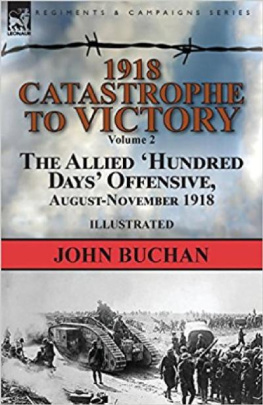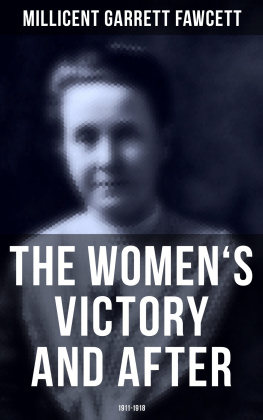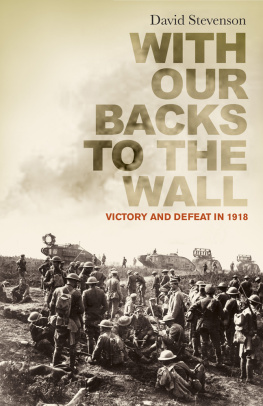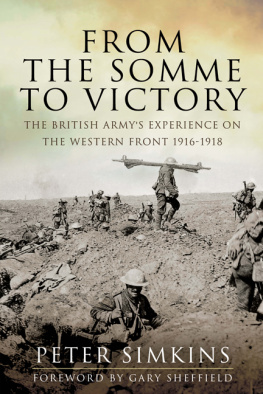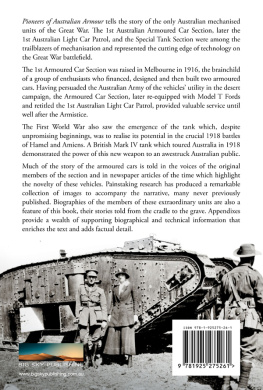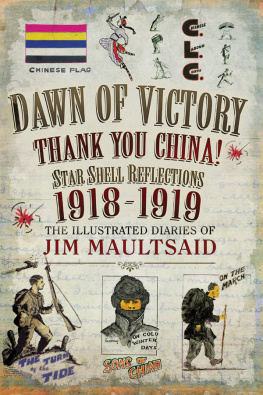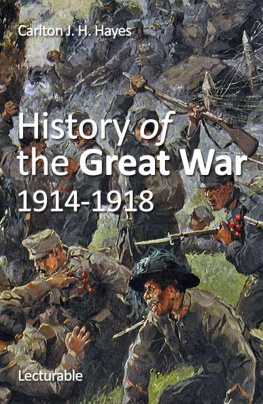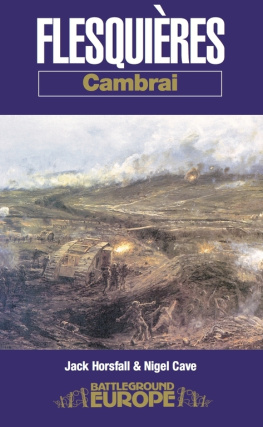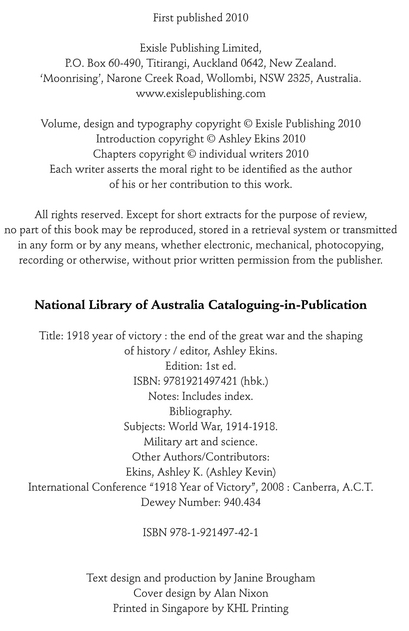Preface
The Great War of 191418 casts a long shadow. It is over 90 years since the last shots were fired, ending a global conflict that consumed the lives and hopes of so many of its generation. Yet many aspects of the war remain indelibly imprinted in modern memory. The catastrophic scale of the war and its immense human cost haunted the survivors. Many believe the war also set the pattern for large-scale violence, devastation and genocide throughout the wars of the twentieth century.
In recent years, the passing of the remaining survivors has revived poignant memories. The last First World War veterans of France, Germany, Hungary, Turkey, Poland, Australia and New Zealand have all died within the past year. As this book goes to press, just three Great War veterans remain, one each from the British, Canadian and American forces. All are over 108 years old.
Britains last two surviving veterans who saw action in the Great War died within a week of each other in July 2009.
Henry Allingham, who died on 18 July at the record age of 113, was the last surviving sailor of the Royal Navy. He saw action initially at sea as a 20-year-old aircraft rigger and mechanic during the battle of Jutland in 1916, and later on the Western Front with the Royal Naval Air Service. In his later years he recalled his nightmare experience of falling into a shell hole full of foul water and rotting bodies while looking for a downed aircraft on the Western Front. He was lucky to haul himself from what could have been his ghastly grave. In 2006 he visited the battlefields for the last time and shared an emotional meeting with a German veteran of the trenches.
Harry Patch died on 25 July at the age of 111. He was, as the title of his book states, The Last Fighting Tommy (2007), a survivor of the 1917 battle of Passchendaele. Conscripted in October 1916 at 18 years of age, by the middle of the following year he was a lance corporal, machine-gunner in an infantry regiment. He experienced the ordeal of the Third Ypres campaign until he was severely wounded in September 1917 and evacuated to hospital in England. In his published recollections he referred to the war as legalised mass murder.
Such sentiments may be viewed by later generations as confirmation that the First World War was a futile and wasteful enterprise, devoid of purpose. The veterans have been characterised as hapless victims who renounced both the war and the cause they once served; exploited by appeals to patriotism and loyalty as young soldiers, it seems they were destined in old age to have their war service expropriated to serve an ideology of disillusionment.
For historians the reality seems infinitely more complex. Scholars continue to search for insights and understanding into the First World War, one of the most calamitous events of the modern age. Together with investigations into the origins, causes and conduct of the war, debate continues over the manner of the wars conclusion, how it came about, and the respective roles of the victors and vanquished. These are among the primary themes of this volume.
Many people assisted in the compilation and production of this book. Foremost are my fellow contributors, most of whose chapters were first presented at the international conference, 1918 Year of Victory, convened at the Australian War Memorial in November 2008. It was a great pleasure to welcome so many fine scholars to the Memorial and to collaborate with them in this publication. I thank them all for their generous participation in that outstandingly successful event, for promptly supplying their chapters for this work, and for complying with occasional editorial demands.
I especially thank Ian Watt and Benny Thomas of Exisle Publishing for their assistance in preparing the volume for publication and my colleague Ron Schroer for his capable administration of the publication arrangements. Memorial senior editor Robert Nichols, assisted by Andrew McDonald and Jack Bowers, edited the diverse collection of papers with professional skill to meet the publishers requirements. I thank Aaron Pegram who researched photographic collections with flair and imagination, and Diane Lowther who compiled the index.
Penguin Group (Australia) has permitted the reproduction of two maps kindly provided by Peter Pedersen from his volume, The Anzacs: Gallipoli to the Western Front. The Australian War Memorial provided most of the photographs in the book. We thank the Imperial War Museum in London and the Alexander Turnbull Library in Wellington, New Zealand, who also provided several photographs. Every effort has been made to locate current holders of copyright for text and illustrations reproduced here, but we apologise for any omissions and would welcome information to enable amendments to be made to future editions.
The Australian War Memorial gratefully acknowledges the sponsorship and support of the Department of Veterans Affairs and the Minister responsible, the Honourable Allan Griffin MP, who generously took time from his busy schedule to open the 1918 Year of Victory conference and attended several sessions.
I express my sincere appreciation for the unfailing support of colleagues in the Memorials Military History Section. I also thank the Memorials Director Steve Gower for his continued strong support for military history studies and for striving to maintain the Memorials preeminence as one of the finest research facilities in the world.
Finally, I thank my partner Debbie Lackerstein, whose constant support and advice has enabled me to complete this work together with so many other important projects she brings balance and bliss to my world of wars unending.
Ashley Ekins
Australian War Memorial
August 2009
Notes on contributors
Jay Winter is Charles J. Stille Professor of History at Yale University. He is an internationally renowned scholar of the First World War and its impact on the 20th century. His interests range widely and include the remembrance of war in the 20th century, European population decline, the causes and institutions of war and British popular culture in the era of the Great War. Professor Winter is the author or co-author of over a dozen books, including significant landmark works such as The Great War and the British People (1986), The Experience of World War I (1988), Sites of Memory, Sites of Mourning: The Great War in European cultural history (1995), 19141918: The Great War and the shaping of the 20th century (with Blaine Baggett, 1996). He has written numerous articles, contributed more than 40 chapters to edited volumes, and edited or co-edited 13 books. His most recent publications include The Great War in History: Debates and controversies, 1914 to the present (with Antoine Prost, 2005), Remembering War: The Great War between memory and history in the twentieth century


